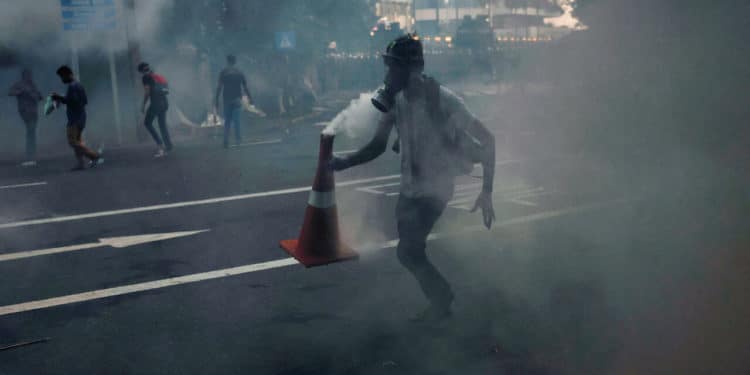Sri Lanka imposes curfew as cops fire tear gas at protesters

The protesters and other critics have said that President Gotabaya Rajapaksa is responsible for the economic crisis, the worst since the country’s independence in 1948. They also blame Ranil Wickremesinghe, who became prime minister two months ago, for not delivering on promises to end the shortages.
Civic and opposition activists have announced that thousands more protesters will gather in Colombo on Saturday. But the police announcement of the curfew said it took effect at 9 p.m. and will last until further notice in Colombo and its suburbs.
The bar association statement asked police to immediately withdraw what the association called an “illegal order” imposing the curfew.
Opposition leader Sajith Premadasa called the curfew”a fraud.”
“Get on to the streets tomorrow. Defy the dictatorship and join with the people to make democracy victorious. Yes we can,” he said in a tweet.
The U.S. Ambassador to Sri Lanka, Julie Chung, asked people to protest peacefully and asked the military and police “to grant peaceful protestors the space and security to do so.”
“Chaos & force will not fix the economy or bring the political stability that Sri Lankans need right now,” Chung said in a tweet.
Because of the economic crisis, inflation has spiked and prices of essentials have soared, dealing a severe blow to poor and vulnerable groups.
Due to the fuel and power shortages, schools have been shut for weeks and the government has asked state employees other than those in essential services to work from home.
In Colombo, protesters have occupied the entrance to the president’s office for nearly three months to demand his resignation. They accuse him and his powerful family, which includes several siblings who until recently held Cabinet positions, of precipitating the crisis through corruption and misrule.
Months of protests have nearly dismantled the Rajapaksa political dynasty that has ruled Sri Lanka for most of the past two decades.
One of Rajapaksa’s brothers resigned as prime minister last month, and two other brothers and a nephew quit their Cabinet posts earlier.
President Rajapaksa has admitted he did not take steps to head off the economic collapse early enough, but has refused to leave office. It is nearly impossible to oust presidents under the constitution unless they resign on their own.





